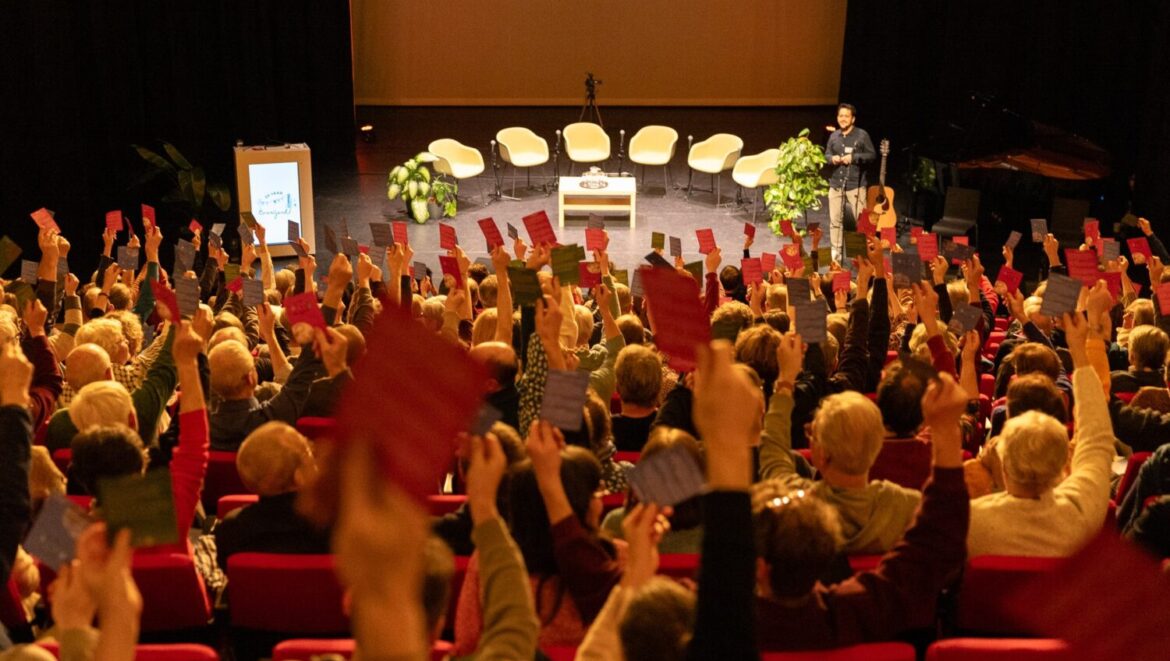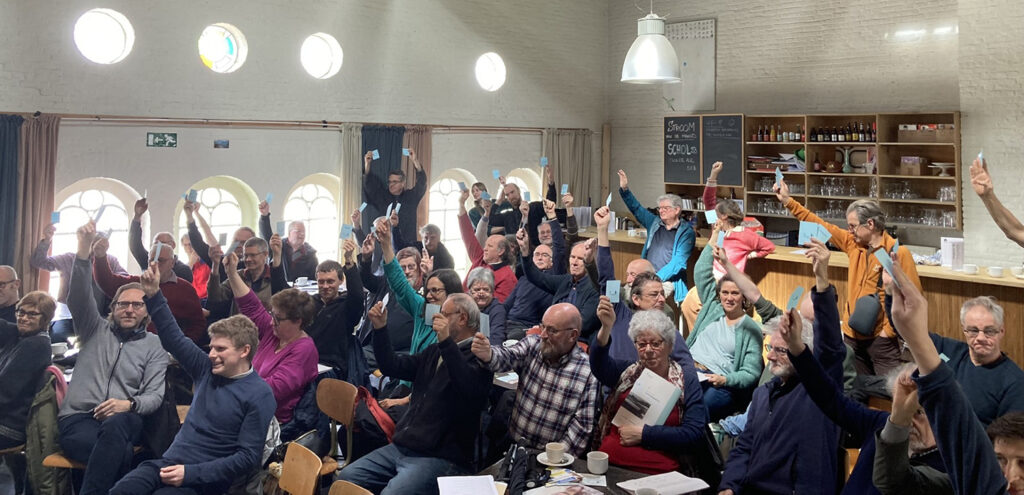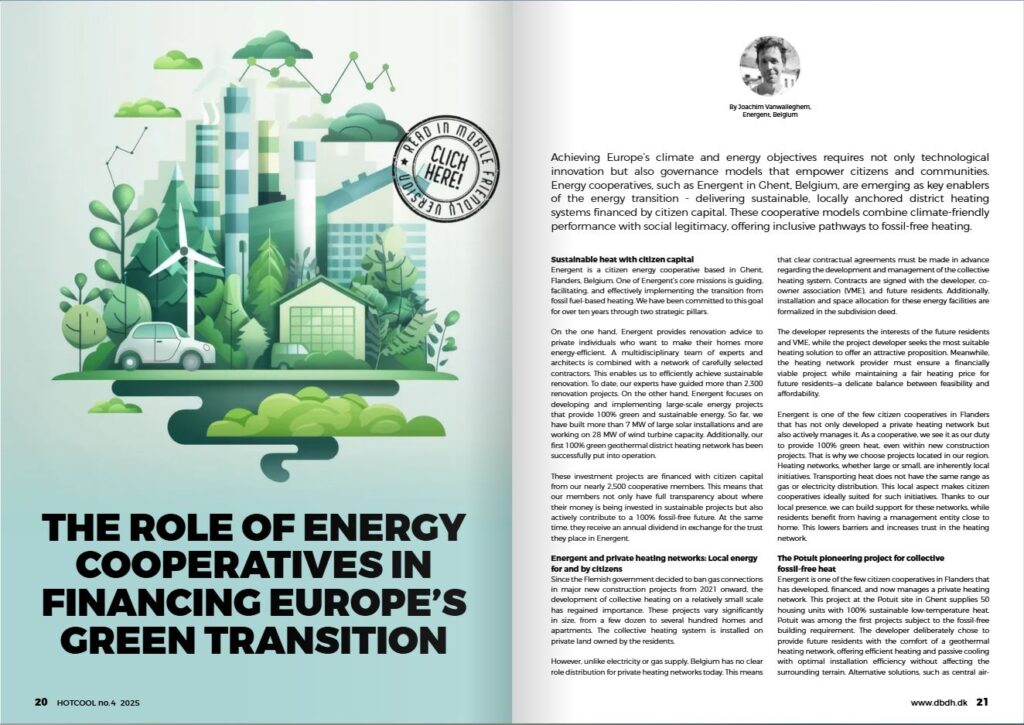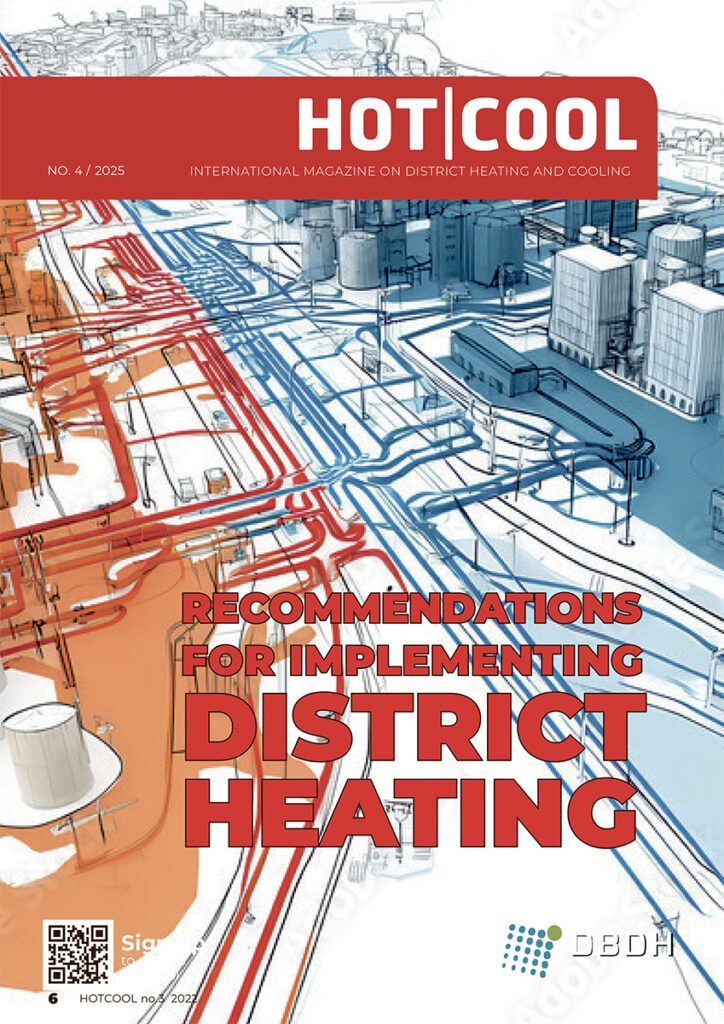Achieving Europe’s climate and energy objectives requires not only technological innovation but also governance models that empower citizens and communities. Energy cooperatives, such as Energent in Ghent, Belgium, are emerging as key enablers of the energy transition – delivering sustainable, locally anchored district heating systems financed by citizen capital. These cooperative models combine climate-friendly performance with social legitimacy, offering inclusive pathways to fossil-free heating.
By Joachim Vanwalleghem, Energent, Belgium
Published in Hot Cool, edition no. 4/2025 | ISSN 0904 9681 |
Sustainable heat with citizen capital
Energent is a citizen energy cooperative based in Ghent, Flanders, Belgium. One of Energent’s core missions is guiding, facilitating, and effectively implementing the transition from fossil fuel-based heating. We have been committed to this goal for over ten years through two strategic pillars.
On the one hand, Energent provides renovation advice to private individuals who want to make their homes more energy-efficient. A multidisciplinary team of experts and architects is combined with a network of carefully selected contractors. This enables us to efficiently achieve sustainable renovation.
To date, our experts have guided more than 2,300 renovation projects. On the other hand, Energent focuses on developing and implementing large-scale energy projects that provide 100% green and sustainable energy. So far, we have built more than 7 MW of large solar installations and are working on 28 MW of wind turbine capacity. Additionally, our first 100% green geothermal district heating network has been successfully put into operation.
These investment projects are financed with citizen capital from our nearly 2,500 cooperative members. This means that our members not only have full transparency about where their money is being invested in sustainable projects but also actively contribute to a 100% fossil-free future. At the same time, they receive an annual dividend in exchange for the trust they place in Energent.
Energent and private heating networks: Local energy for and by citizens
Since the Flemish government decided to ban gas connections in major new construction projects from 2021 onward, the development of collective heating on a relatively small scale has regained importance. These projects vary significantly in size, from a few dozen to several hundred homes and apartments. The collective heating system is installed on private land owned by the residents.
However, unlike electricity or gas supply, Belgium has no clear role distribution for private heating networks today. This means that clear contractual agreements must be made in advance regarding the development and management of the collective heating system. Contracts are signed with the developer, co-owner association (VME), and future residents. Additionally, installation and space allocation for these energy facilities are formalized in the subdivision deed.
The developer represents the interests of the future residents and VME, while the project developer seeks the most suitable heating solution to offer an attractive proposition. Meanwhile, the heating network provider must ensure a financially viable project while maintaining a fair heating price for future residents—a delicate balance between feasibility and affordability.
Energent is one of the few citizen cooperatives in Flanders that has not only developed a private heating network but also actively manages it. As a cooperative, we see it as our duty to provide 100% green heat, even within new construction projects. That is why we choose projects located in our region. Heating networks, whether large or small, are inherently local initiatives.
Transporting heat does not have the same range as gas or electricity distribution. This local aspect makes citizen cooperatives ideally suited for such initiatives. Thanks to our local presence, we can build support for these networks, while residents benefit from having a management entity close to home. This lowers barriers and increases trust in the heating network.
The Potuit pioneering project for collective fossil-free heat
Energent is one of the few citizen cooperatives in Flanders that has developed, financed, and now manages a private heating network. This project at the Potuit site in Ghent supplies 50 housing units with 100% sustainable low-temperature heat. Potuit was among the first projects subject to the fossil-free building requirement.
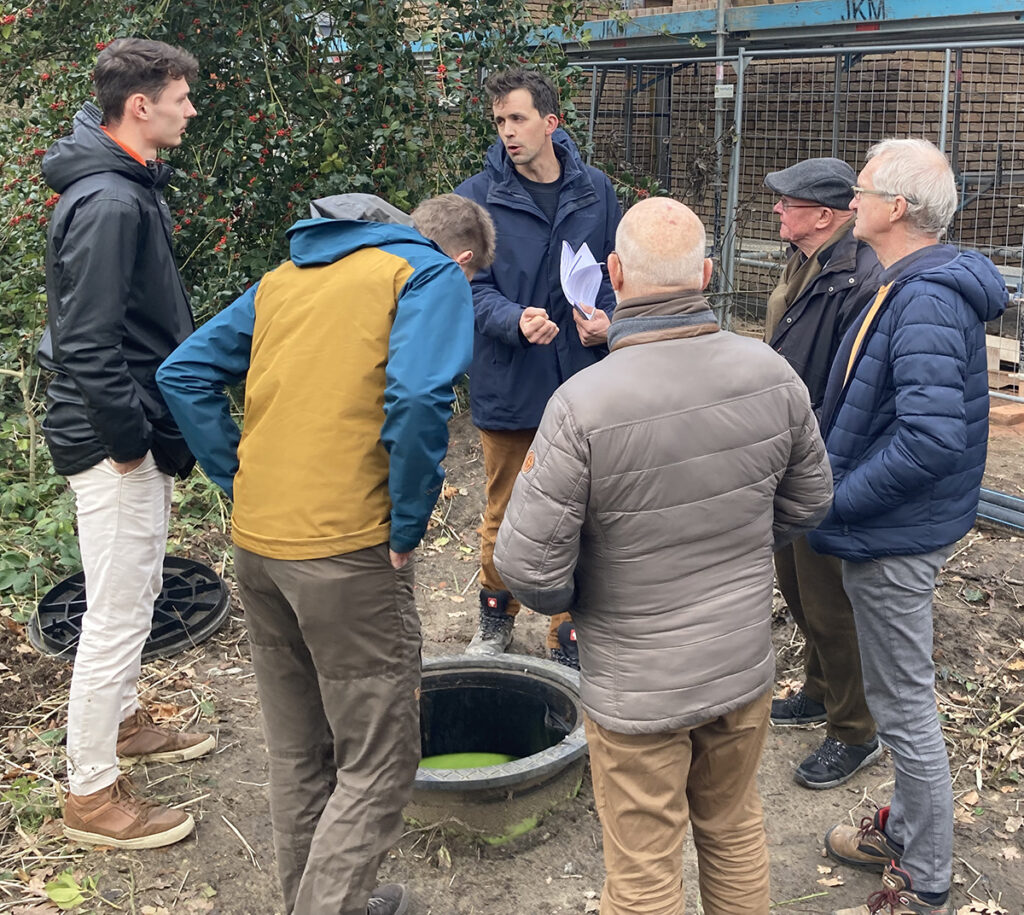
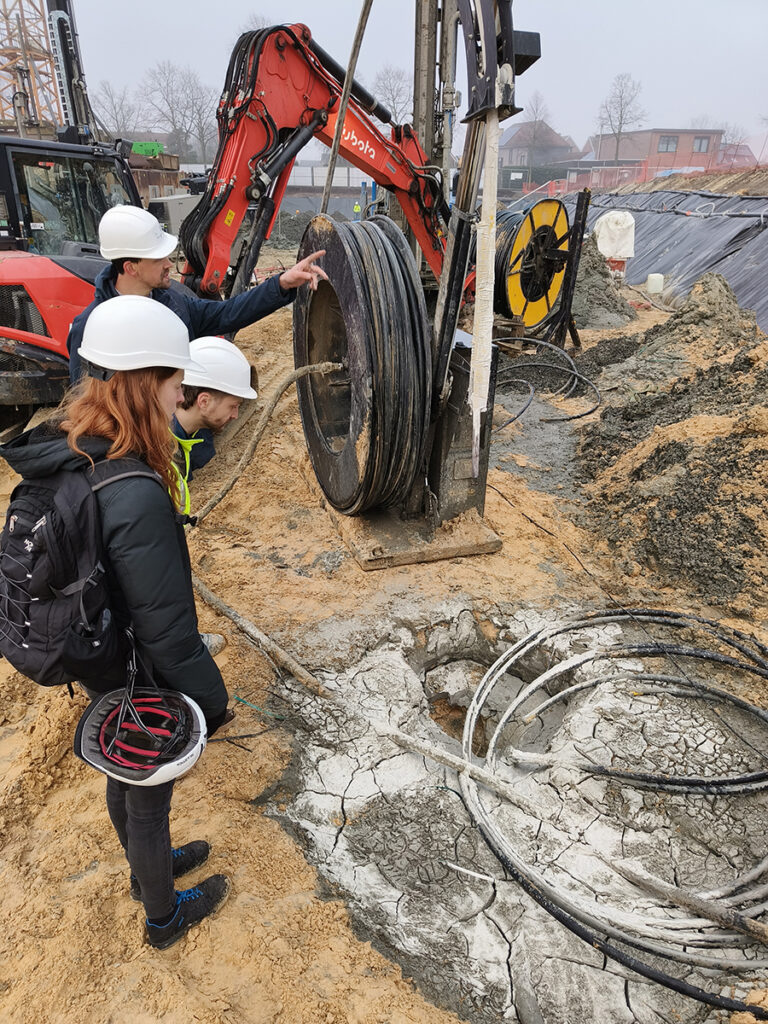
The developer deliberately chose to provide future residents with the comfort of a geothermal heating network, offering efficient heating and passive cooling with optimal installation efficiency without affecting the surrounding terrain. Alternative solutions, such as central air-to-water or individual heat pumps per unit, were consciously avoided.
Energent took on the challenge of realizing this concept. Looking back, this development was very time-intensive for both the developer and Energent. The long development time is precisely what prevents many organizations from rolling out heating networks on a large scale, as it entails high costs. Thanks to the expertise of several of our board members and volunteers, we were able to realize this heating network as a relatively small cooperative. We are proud of this achievement.
Challenges in developing a heating network
Other uncertain factors in operating a heating network include actual heat consumption and the phasing of the construction project. The business case is negatively impacted if heat consumption deviates too much from initial estimates. Financing a heat project via an ESCO model is only feasible if there is a stable base load for heat demand.
The technical aspect of the Potuit project was perhaps the simplest part. More complex was drafting the contracts. In this regard, Potuit can even be seen as a pilot project, as everything had to be developed from scratch. Many questions arose regarding contract structures and pricing models. How do we structure the tariff plan for future residents? What guarantees and services does Energent provide? How will this be practically organized? How long will Energent remain involved in Potuit, and what happens afterward?
Energent chose to offer a comprehensive ten-year warranty to Potuit residents. This guarantee covers all issues with the collective installation or individual unit installations at no cost to residents. This is included in a fixed monthly fee, in addition to the heat price, ensuring complete peace of mind.
Energent also provides a 24/7 emergency service for urgent interventions, ensuring residents always receive reliable service and comfort. This reliability builds trust in collective heating networks as a sustainable, efficient, and customer-oriented heating solution.
Managing the heating network has revealed that residents need time to adjust to heat supply via a district heating system, as it differs from conventional heating methods. This is especially evident in temperature regulation concerns. Floor heating provides a sensation of warmth different from high-temperature radiators.
Additionally, comfort temperature preferences vary greatly among residents. In a collective system with predetermined heat supply parameters, accommodating all individual preferences without reducing efficiency is challenging. Decisions on adjustments are made in consultation with the VME, with financial and technical implications considered.
A new project for Energent
A new private construction project for 120 housing units has been initiated, where Energent will also build and manage the heating network—Potuit 2.0. We have observed that since 2021, the market has matured, both in terms of contract development and pricing models. Simultaneously, Energent has gained valuable experience from its first heating project, allowing us to approach this new endeavor with greater confidence and expertise. We look forward to providing future residents with excellent heating comfort when they move in at the end of 2026.
Towards heating networks in public spaces
Energent is involved in the EU NSR Waterwarmth project, a consortium of 18 partners from five countries. Through feasibility studies and practical tests, this initiative explores aquathermal energy—thermal energy from surface water. Energent is investigating the viability of a collective heating installation based on aquathermal energy for the Muide-Noord region in Ghent. This 150,000 m² area is undergoing redevelopment, potentially connecting over 500 housing units to a heating network.
Developing heating networks in public spaces is significantly more complex and time-consuming than on private land but has a much greater impact. We aim to demonstrate that green heating networks can be successfully implemented in existing urban environments.
An ambitious role for governments and energy cooperatives
Finally, Energent advocates for more ambitious heating network expansion. Developing private heating networks proves fossil-free heating can provide the same comfort as conventional systems. However, this alone is not enough to accelerate the transition.
Governments must create a strong legal foundation, provide financial flexibility, and give stakeholders a clear mandate. Local authorities, in particular, must present a clear and ambitious plan for sustainable, locally generated energy. Citizen energy cooperatives like Energent play a crucial role in this transition through their multidisciplinary approach and strong community connections.
For further information, please contact: warmte@energent.be
“The Role of Energy Cooperatives in Financing Europe’s Green Transition” was published in Hot Cool, edition no. 4/2025. You can download the article here:
Did you find this article useful?
Subscribe to the HOT|COOL newsletters for free and get insightful articles on a variety of topics delivered to your inbox twice a month!
